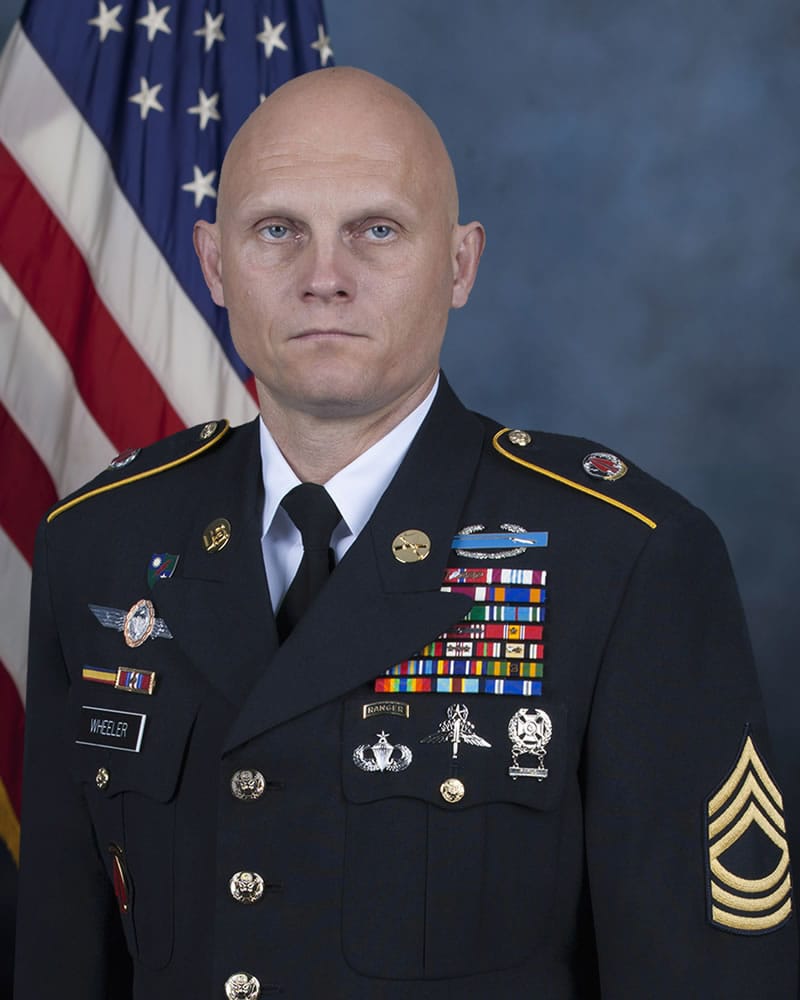WASHINGTON — The U.S. soldier fatally wounded in a hostage rescue mission in Iraq heroically inserted himself into a firefight to defend Kurdish soldiers, even though the plan called for the Kurds to do the fighting, Defense Secretary Ash Carter said Friday.
“This is someone who saw the team that he was advising and assisting coming under attack, and he rushed to help them and made it possible for them to be effective, and in doing that lost his own life,” Carter told a news conference.
Carter applauded Army Master Sgt. Joshua L. Wheeler, 39, of Roland, Okla., who died of his wounds Thursday.
The defense chief gave the most extensive public description yet of the pre-dawn raid on an Islamic State prison compound near the town of Hawija. About 70 people, at least 20 of them members of the Iraqi security forces, were freed. It was the first time U.S. troops were involved in direct ground combat in Iraq since the war against the Islamic State was launched in August 2014, and Wheeler was the first U.S. combat death.
Carter said he expects U.S. forces to be involved in more such raids against Islamic State targets, describing it as part and parcel of what the Pentagon calls a “train, advise and assist” mission in support of Iraqi forces. At one point he said, “It doesn’t represent assuming a combat role” — but later, in noting that it is difficult to see the full picture of what happened during the Hawija raid, he said: “This is combat. It’s complex.”
Carter portrayed Wheeler as a hero and said he would be present when Wheeler’s body is returned to the U.S. on Saturday.
“As the compound was being stormed, the plan was not for the U.S. … forces to enter the compound or be involved in the firefight,” he said. “However, when a firefight ensued, this American did what I’m very proud that Americans do in that situation, and he ran to the sound of the guns and he stood up. All the indications are that it was his actions and that of one of his teammates that protected those who were involved in breaching the compound and made the mission a success.”
“That is an inherent risk that we ask people to assume,” he added. “Again, it wasn’t part of the plan, but it was something that he did, and I’m immensely proud that he did that.”
He noted that his understanding of what happened is based on early reports.
After Carter’s remarks at the Pentagon, other U.S. officials said the plan for the rescue mission had called for the U.S. special operations troops, members of the elite and secretive Delta Force, to stay back from the prison compound and let the Kurds do the fighting. The Americans transported the Kurds to the scene aboard five U.S. helicopters.
Carter said the U.S. and its Kurdish partners collected valuable intelligence at the scene, including documents and electronics. This, he said, shows “the great value of raids of this kind, and I expect we’ll do more of these kinds of things.”
In explaining his decision to approve the use of U.S. troops to support the Kurds in their rescue mission, Carter said there was intelligence indicating that those inside the prison compound faced mass execution by their Islamic State captors.
“Their graves had already been prepared,” he said. Asked how he knew this, Carter said: “It happens that we had seen that beforehand. We were watching this compound” after Kurdish authorities determined that it held numerous hostages.
“The graves were right next door to the compound,” he said, adding that although it was impossible to know for certain that their purpose was to dispose of executed prisoners, “it sure looked like that.”
Wheeler was flown from the scene after being wounded and died after receiving medical treatment in Irbil in northern Iraq.
He was assigned to the U.S. Army Special Operations Command in Fort Bragg, N.C.
U.S. combat troops have rarely, if ever, faced IS fighters directly in combat on the ground since the U.S. mission began in 2014.



